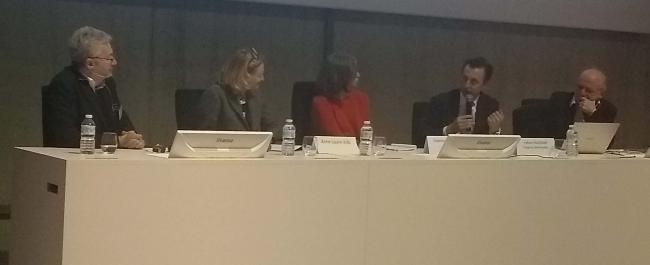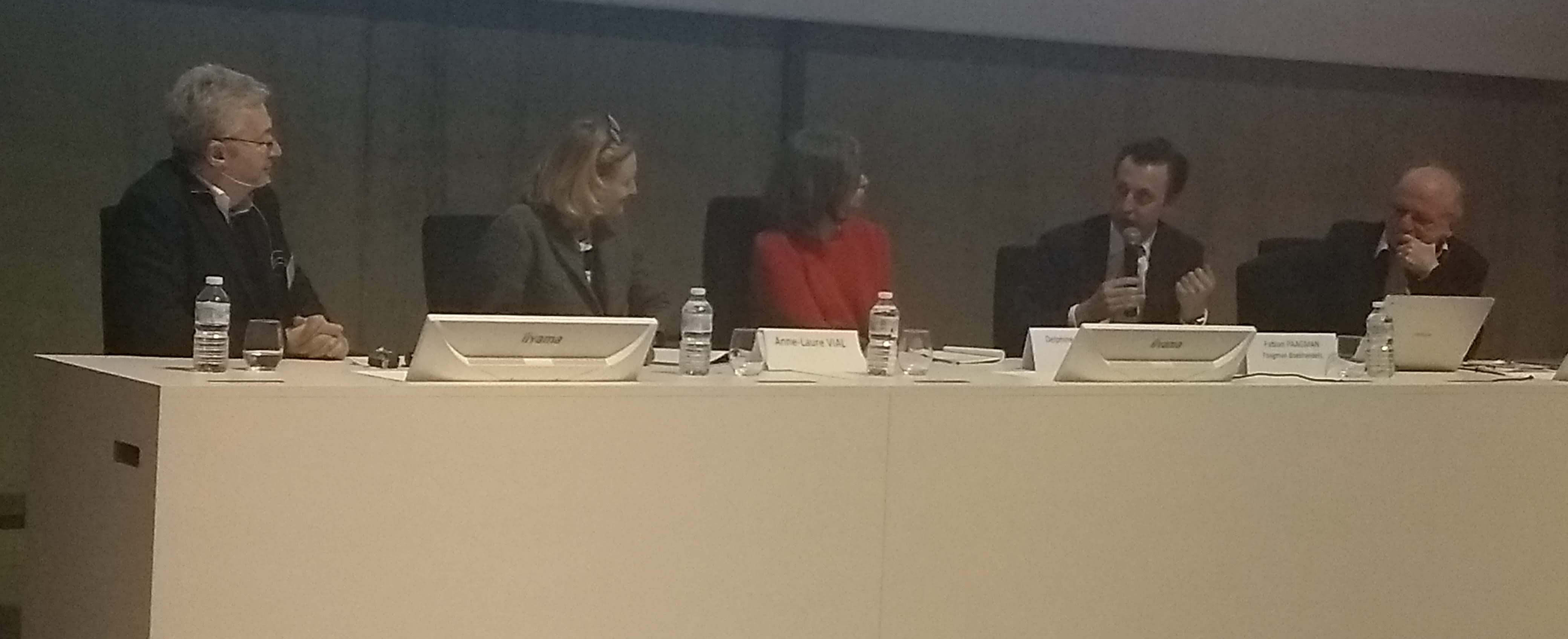
EIBF co-President Fabian Paagman participates at the first ever European Book Conference in Brussels
The EIBF co-President Fabian Paagman joined a panel discussion during the first ever European Book Conference on bookshops and technological giants that dominate the online book market. The event took place in Brussels on 4 March, and was organised by the Brussels Book Fair and Livres Hebdo (French book trade magazine). It brought together various stakeholders from the book industry, including policymakers, booksellers, publishing executives, authors, literary agents, and other professionals in the field.

Fabian was joined by Philippe Goffe, founder of Graffiti bookshop and president of the Association Internationale des Libraires Francophones, and Delphine Bouetard and Anne-Sophie Vial, co-founders of Ici Librairie. The panel focused on highlighting the keys to put bookshops forward in the customer journey, exploring how to introduce more services and provide a great customer experience, and discussing the growth engines of successful European bookstores.
Speaking about the rise of technology in the book industry, Fabian highlighted that we should try to avoid seeing tech as the problem by itself. The role technological giants, such as Amazon, Google, or Facebook, play is definitely problematic, however, that is not a problem of technology – it is a political and legislative issue. It is crucial we enable a level playing field for all actors in the bookselling industry, and that can only be done by working together with policymakers to ensure equal treatment across the board.
In his speech, Fabian stressed that booksellers, and likewise other actors in the bookselling industry, shouldn’t view technology as a threat. Instead, technology can provide an opportunity for development, especially for small- and medium-sized businesses worldwide. Never before has technology been so accessible, and booksellers shouldn’t be vary of using it.

Fabian shared his views as a bookseller: “Ten, or even five, years ago many of us would say that technology was a threat to the bookselling business. Today, as a bookseller, I look very differently on that. I think it’s a great opportunity. Technological developments have never been so accessible, especially for small- and medium-sized companies. There is a bigger chance than ever before to participate in the technological developments that are surrounding us, and, that are at the same time driving strong change, including consumer behaviour.”
However, it is important to acknowledge that the book trade is a busy market, where not all actors face same challenges. Good example is taxation, where tech giants are in significantly better position. In addition, due to their sizes, they can more easily leverage other opportunities, that for small- and medium-sized businesses often remain out of reach. It is therefore crucial we enable a level playing field for all actors in the book trade, with equal opportunities, otherwise there is a real danger we will only be able to buy books online in the future, as French writer Bertrand Puard said at the event.
However, supporting equal rights for all actors in the book trade is less about technology, and more about politics. Fabian said: “I recently attended a great antitrust symposium, where it was clearly explained that the strong position Amazon, for example, has in our industry is not so much a problem of technological development, but is more a problem of regulation and law-making.”
This presents a critical challenge, but also an opportunity, to work with policymakers on clearly defining the regulatory framework to ensure all actors in the book trade have access to equal opportunities.
Discover our coverage of the day on our Twitter channel, and find out more about the event.
